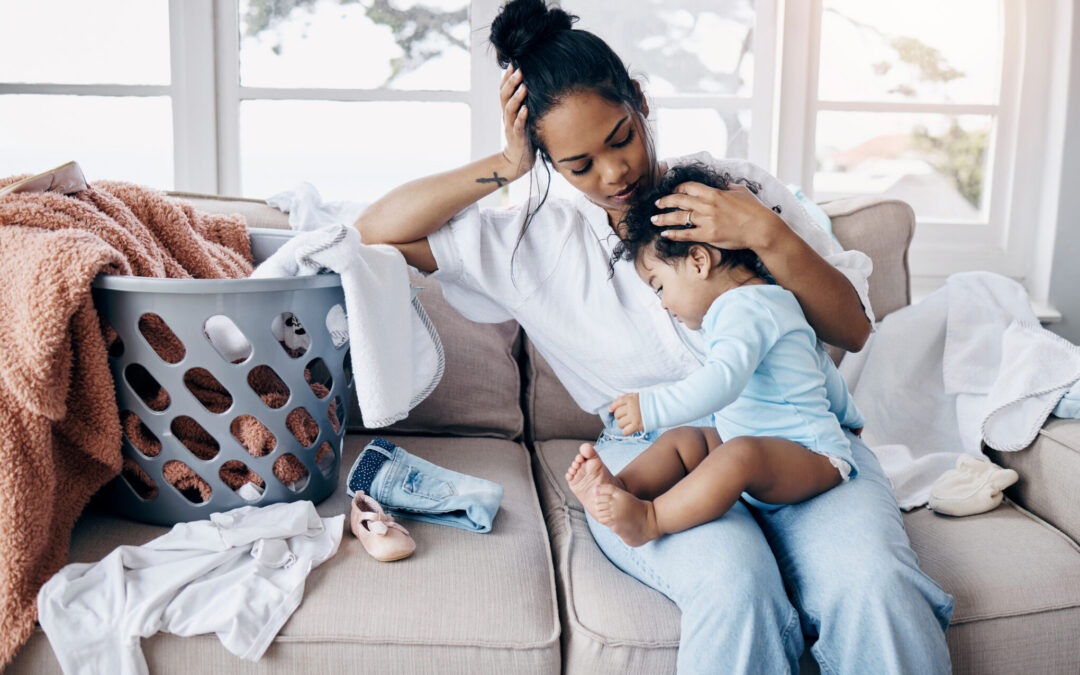In A Nutshell:
-
- Parents of young kids feel like “bad” parents 3 times a week, totaling 156 times per year.
- Financial stress, lack of personal time, and work-life balance are top parenting challenges.
- Gen Z parents are most likely to keep parenting struggles private.
- Nearly half of moms and Gen Z parents say they do more parenting than their partners.
- Experts say community support is key to breaking the cycle of stress and silence.
Every week, millions of American parents experience the same crushing feeling: they’re failing their children. It happens on Tuesday when bedtime becomes a battle. Again on Thursday when patience runs thin. And once more on Saturday when guilt creeps in during a family outing gone wrong.
A new nationwide Talker Research survey shows that parents question their abilities and feel like “bad parents” three times per week on average, totaling 156 moments of self-doubt every year. Yet these same parents also laugh with their children 12 times daily, showing the emotional rollercoaster that defines modern family life.
The study, commissioned by Celebree School, surveyed 2,000 American parents with children 11 and under. The results show how today’s moms and dads are drowning in pressure while struggling largely in silence.
Financial Stress and Work-Life Balance Top Parent Concerns
Money worries top the list of parenting struggles, with 42% of parents citing financial pressures as their biggest challenge. Close behind are two equally demanding concerns: lack of personal time for self-care (34%) and juggling work with family responsibilities (34%).
Parents face an average of two situations per week with their children that leave them completely stumped. Nearly half (45%) admit parenthood has been more demanding than expected, while 39% would feel inadequate asking for advice about educating or communicating with their child.
The emotional toll shows up in telling ways. Parents shared raw indicators of when they need a break: “when I begin to feel unnecessarily angry” and “when the stress makes me cry.” On average, parents feel they need time away from their duties twice weekly.
Managing advice and expectations from others overwhelms 16% of parents, while 13% worry about their children hitting developmental milestones on schedule.
Gen Z Parents More Likely to Keep Parenting Struggles Secret
Age makes a difference in parenting expectations and coping strategies. Nearly half of Gen X parents (48%) and millennials (46%) report that raising children has been harder than anticipated, compared to just 36% of Gen Z parents.
When it comes to sharing struggles, the pattern flips. Gen Z parents are most likely to keep frustrations private, with 47% staying silent about their challenges. Millennials are most open, with only 25% keeping struggles secret. Overall, 41% of parents with young children bottle up their parenting frustrations entirely.
The reluctance to share isn’t unfounded. Parents who do open up often face criticism from those closest to them. Twenty-four percent felt judged by their own parents, 23% by their partners, and 15% by friends when discussing parenting challenges. A substantial 60% say feeling judged has made them hesitant to share struggles in the future.
Why Mothers and Gen Z Parents Carry Heavier Parenting Load
Half of parents report an imbalance in how parenting duties are split with their partner. Specifically, 41% say they handle more responsibilities than their partner, with both Gen Z parents and mothers (45% each) most likely to carry a heavier load compared to older generations and fathers.
Parents do recognize when they need professional help. They know to seek extra support when feeling overwhelmed and frustrated (33%), when they’ve tried everything on their own (27%), or when professionals like doctors or teachers recommend it (12%).
Expert Says Parents Need More Community Support
“As the study shows, parents today are not only juggling daily responsibilities — they’re growing and learning right alongside their children,” said Kristen Miller, director of education at Celebree School. “While it’s natural to feel overwhelmed at times, it’s important to remember that parenthood is also filled with beautiful, rewarding moments. No one should have to navigate it alone — leaning on community and support can turn challenges into shared growth and joy.”
Miller emphasizes that isolation shouldn’t be the norm. “Parenting takes a village — it’s never meant to be done alone,” said Miller. “We hope conversations around the real struggles of parenting become more open, less stigmatized, and that families feel empowered to ask for help. As we grow in communities across the country, our goal is to be part of that village — offering guidance, support, and a safe space during one of the most rewarding and challenging stages of life.”
The research shows a troubling cycle: parents face mounting pressures while feeling too judged to seek the support they desperately need. Breaking this pattern requires communities, families, and society to normalize parenting struggles rather than perpetuate unrealistic standards.
Despite the challenges, the study offers hope. Children bring joy to their parents’ lives 12 times daily through laughter, serving as a powerful reminder that even amid the hardest moments, parenting remains deeply rewarding. The key lies in creating systems that support parents through both the struggles and the joys.
Study Methodology
Talker Research surveyed 2,000 American parents of young children (ages 0-11) online between April 17 and April 25, 2025. The survey was commissioned by Celebree School and used standard quality controls to ensure reliable responses, including screening out unusually fast responses and inappropriate answers. Only groups of 80 or more respondents were included in the analysis. The survey was available only to people with internet access, so results may not represent parents without online access.

